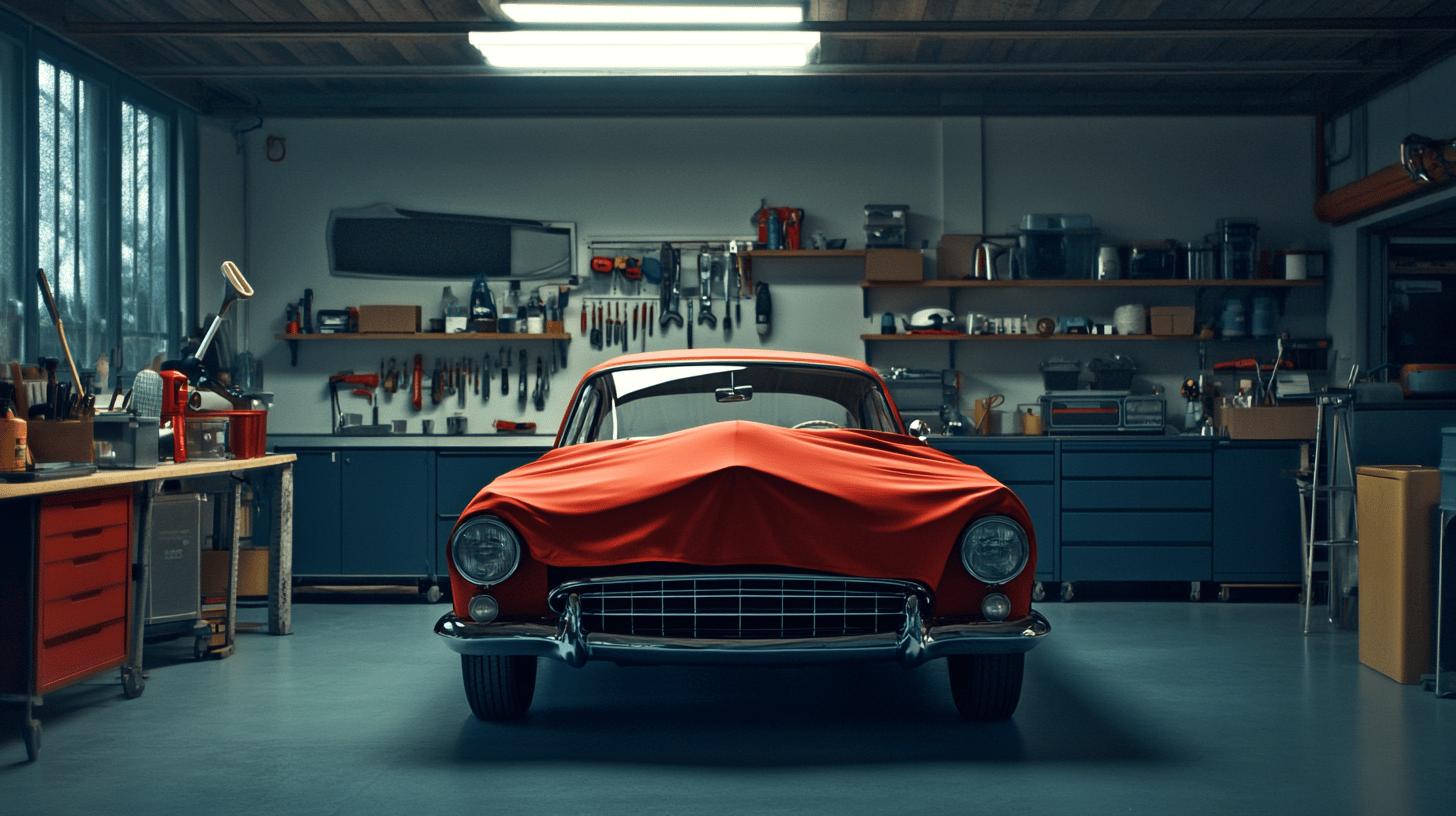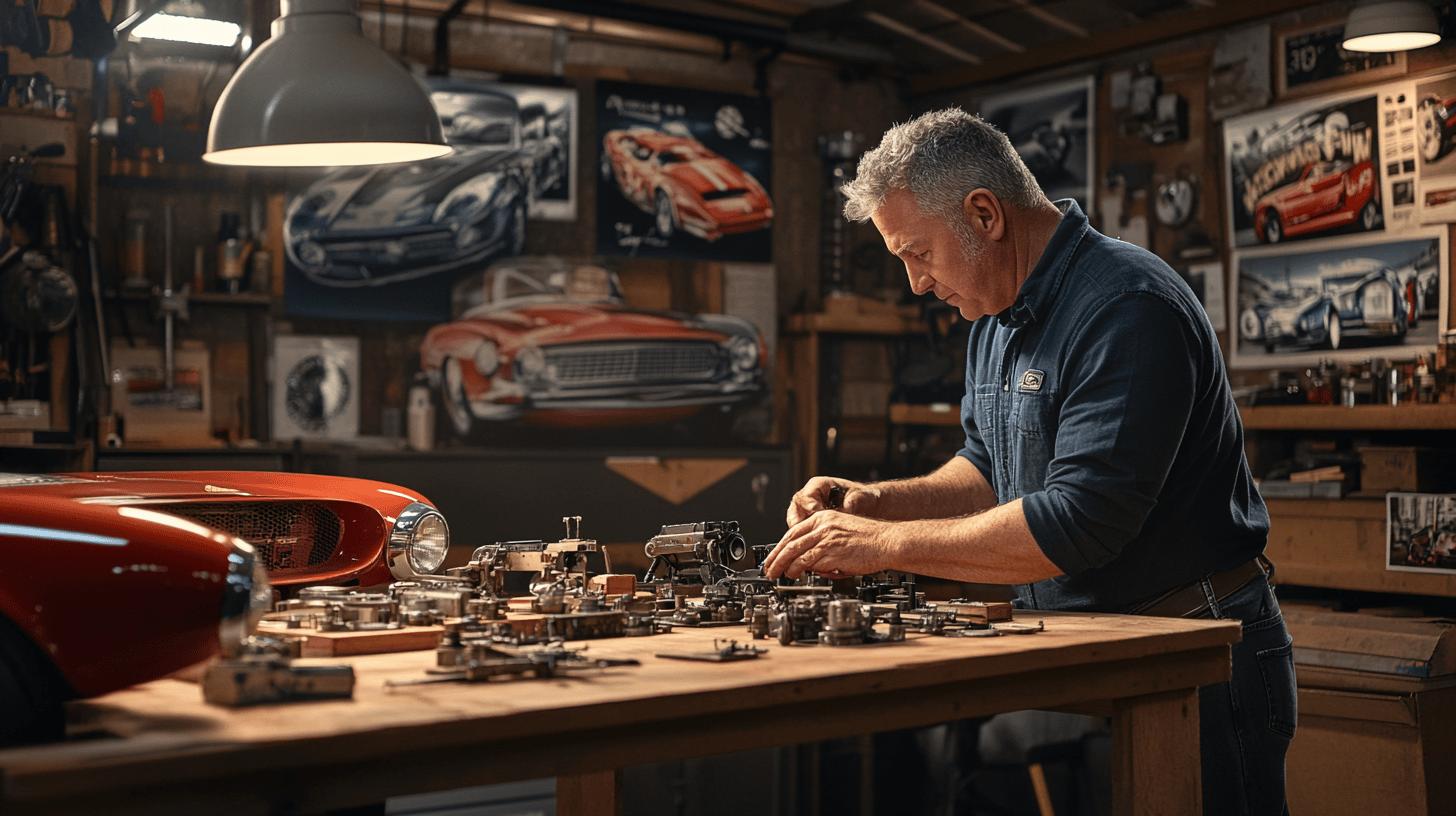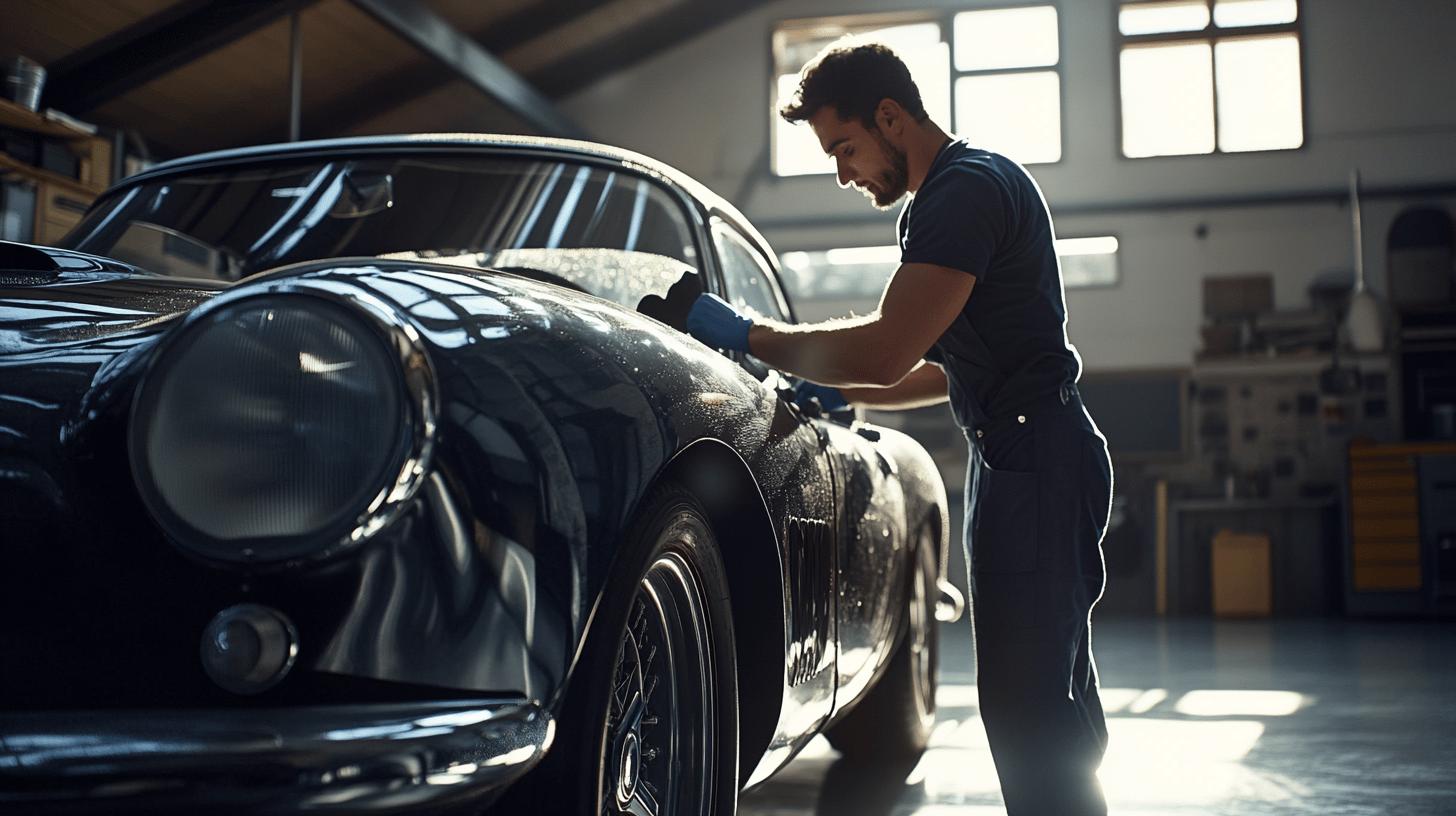Owning a classic car is more than a hobby; it’s a passion that requires dedication and meticulous care to keep your prized possession in pristine condition. Have you ever wondered why some classic cars gleam on the road while others seem neglected and tired? The key lies in a well-rounded maintenance routine. This guide will walk you through essential tips for maintaining your classic car, ensuring it retains its value, operates smoothly, and turns heads wherever you go. Ready to transform your maintenance habits and preserve your classic for years to come?
Essential Maintenance Tips for Classic Cars
Regular maintenance is crucial for keeping your classic car in pristine condition and preserving its value. Older vehicles require more attention than modern cars, as they lack the sophisticated alert systems that notify you of low fluids or other issues. Consistently maintaining your car helps prevent unexpected breakdowns and costly repairs, ensuring a smooth and enjoyable driving experience.
- Check Fluids Regularly: Ensure oil, water, brake fluid, and transmission fluid are at optimal levels.
- Inspect Spark Plugs: Replace spark plugs to avoid ignition problems like misfires and loss of power.
- Monitor Belts and Hoses: Regularly inspect for wear and tear to prevent engine failure.
- Keep the Battery Clean: Clean terminals to avoid corrosion and ensure reliable starts.
- Examine Tyres: Check tyre pressure and tread to maintain safety and performance.
Having your classic car checked by a professional mechanic annually is essential. They can identify and address issues that may not be apparent during routine checks. This thorough inspection ensures all components are in top condition, providing peace of mind and enhancing the longevity of your cherished vehicle.
Cleaning and Waxing Techniques for Classic Cars
Regular cleaning is essential for maintaining the beauty and integrity of your classic car. Dirt, grime, and grit can cause significant damage to the paintwork and metalwork over time. Regular washing and waxing not only keep your car looking its best but also protect it from the elements, particularly during the summer months when the risk of sun damage is higher.
To clean your classic car properly, follow these steps:
- Rinse: Start by rinsing the car with water to remove loose dirt and debris.
- Wash: Use a car-specific shampoo and a soft sponge or microfiber cloth to gently wash the surface. Avoid using household detergents as they can strip the paint.
- Rinse Again: Thoroughly rinse off the soap to ensure no residue is left.
- Dry: Use a clean, soft towel or chamois to dry the car, preventing water spots.
- Wax: Apply a quality car wax using a soft applicator pad, following the product instructions. Buff to a shine with a microfiber cloth.
- Car Shampoo: Choose a pH-balanced shampoo to protect the paint.
- Microfiber Cloths: Use for washing, drying, and buffing to avoid scratches.
- Soft Sponges: Ideal for gentle washing.
- Car Wax: Opt for a high-quality wax suitable for your car’s paint type.
- Vinyl Protectant: Apply silicone-based protectant to vinyl roofs to prevent sun damage.
Waxing and polishing your classic car offer numerous benefits. Wax acts as a protective layer, shielding the paint from UV rays, bird droppings, and other environmental hazards. Polishing helps to remove minor imperfections and restore the paint’s original shine. Together, these practices enhance the car’s appearance and preserve its value, ensuring your vintage beauty remains in top condition for years to come.
Proper Storage Solutions for Classic Cars

Proper storage is essential for preserving the condition and value of your classic car. Exposure to the elements can lead to rust, paint damage, and other forms of deterioration. By storing your vehicle in a controlled environment, you protect it from these potential hazards. A garage is ideal, but if you lack one, a paid storage service can offer a suitable alternative. Ensuring the storage space is clean, dry, and free from dampness is crucial to prevent rust and mould development.
- Clean the Car Thoroughly: Before storing, wash and wax the car to remove dirt and grime, providing a protective layer against dust and moisture.
- Check and Top Up Fluids: Ensure all fluids, including oil, coolant, and brake fluid, are at optimal levels to prevent internal corrosion.
- Disconnect the Battery: To preserve its charge, disconnect the battery or use a smart charger to maintain it.
- Inflate the Tyres: Inflate tyres to the correct pressure to avoid flat spots during long periods of inactivity.
- Use a Car Cover: Cover the car with a breathable car cover to protect it from dust and light exposure.
Maintaining your classic car during storage is equally important. Open the windows slightly to allow air circulation, preventing bad smells and mould growth. It’s advisable to start the car every few weeks to keep the engine and other systems in good working order. Avoid engaging the handbrake for extended periods to prevent the cables from seizing. By following these practices, you ensure your vintage automobile remains in pristine condition, ready to hit the road whenever you are.
Regular Check-Ups and Servicing for Classic Cars
Regular check-ups by a qualified mechanic are crucial for maintaining the health of your classic car. Even if you have extensive mechanical knowledge, a professional can identify issues that might escape your notice. Regular inspections help prevent minor problems from escalating into significant repairs, ensuring your vehicle’s reliability and safety.
During a servicing session, you can expect a thorough examination of all critical components. Mechanics will check and possibly replace spark plugs to prevent misfires and loss of power. The battery will be inspected for residue on the terminals, which can be cleaned using baking soda and water paste. Applying petroleum jelly can help prevent future corrosion. Fluid levels, including oil, coolant, and brake fluid, will also be checked and topped up as needed.
The benefits of regular servicing extend beyond immediate performance improvements. Annual or 50,000-mile services ensure that all parts are in top condition, enhancing the longevity of your classic car. These routine checks provide peace of mind and help maintain the vehicle’s value, making it a worthwhile investment for any classic car enthusiast.
Rust Prevention and Paint Care for Classic Cars
Rust prevention is critical for preserving the structural integrity and aesthetics of your classic car. Rust can lead to severe damage, compromising not only the appearance but also the safety of the vehicle. Classic cars are particularly susceptible due to their age and the materials used during their production. Preventing rust ensures your car remains in excellent condition, retaining its value and charm.
To clean and protect the paint, start by thoroughly washing the car to remove dirt, salt, and other contaminants that can lead to rust. Use a pH-balanced car shampoo and a soft sponge to avoid scratching the paint. After washing, dry the car with a microfiber cloth to prevent water spots. Next, apply a high-quality car wax to create a protective barrier against moisture and other elements. Polishing the car can also help remove minor imperfections and restore the paint’s shine.
- Rust Inhibitor Spray: Apply to vulnerable areas like wheel arches and undercarriage.
- Car Shampoo: Use a pH-balanced shampoo to safeguard the paint.
- Microfiber Towels: Essential for drying the car without causing scratches.
- High-Quality Car Wax: Provides a protective layer against moisture and UV rays.
- Silicone-Based Vinyl Protectant: Use on vinyl roofs to prevent sun damage and cracking.
Using a car cover is essential for protecting your classic car from the elements. A breathable cover shields the vehicle from rain, wind, snow, and sun, which can cause rust, scratches, dents, fading, or warping. Additionally, avoid exposing your car to fluctuating temperatures, as they can lead to condensation, mold, and mildew. By maintaining a stable environment, you ensure the longevity of both the paint and the overall condition of your classic car.
Sourcing Parts for Your Classic Car

Sourcing genuine parts is critical for maintaining the originality and performance of your classic car. Genuine parts ensure that the vehicle operates as intended by the manufacturer, preserving its historical value and integrity. Using non-genuine or aftermarket parts can lead to compatibility issues, affecting both performance and safety. Authentic parts are also vital for maintaining the car’s resale value, as collectors and enthusiasts often seek vehicles with original components.
- Classic Car Clubs: Join local or national clubs to get recommendations for reputable parts suppliers.
- Online Forums: Participate in discussions with other enthusiasts to find trusted sources for parts.
- Car Shows and Swap Meets: Attend events to find rare and hard-to-find parts and network with other collectors.
- Specialist Suppliers: Seek out businesses that specialise in classic car parts for a reliable source of genuine components.
- Vintage Car Dealers: Some dealers also stock and sell parts for the cars they trade.
Working with a mechanic who specialises in classic cars offers numerous benefits. These professionals have the expertise and experience to install parts correctly, ensuring your vehicle maintains its original performance standards. They are also well-versed in sourcing high-quality parts, often having established relationships with reputable suppliers. By entrusting your classic car to a specialist, you can be confident that it will be maintained and restored to the highest standards, preserving its value and charm for years to come.
Final Words
In the action of preserving your classic car, you’ve delved into key maintenance tips, covering regular checks, cleaning, and vital servicing routines. Proper storage and rust prevention also play significant roles in maintaining the vehicle’s integrity.
Caring for your classic car ensures it remains a valuable and cherished possession. Following these expert guidelines will lead to a well-maintained vehicle that performs well and looks stunning. Taking proper care of your classic car is more than just a task; it’s a rewarding experience that preserves automotive history.
FAQ
How do you care for a classic car?
Maintaining a classic car requires consistency. Regularly check oil and water levels, inspect belts and hoses, and conduct annual professional check-ups. Proper storage and cleaning also preserve the vehicle’s value and condition.
What is the best way to keep a classic car?
The best way to keep a classic car involves regular maintenance, proper storage, and frequent cleaning and waxing. This helps in preventing mechanical issues and protects the vehicle’s exterior.
How often should you wash your classic car?
Wash your classic car at least once a month to remove dirt, grime, and other contaminants. Frequent washing is especially important during summer to protect the paintwork and metal.
How often should you change the oil in a classic car?
Change the oil in your classic car every 3,000 to 5,000 miles or at least once a year. Regular oil changes ensure the engine runs smoothly and prolongs its lifespan.

